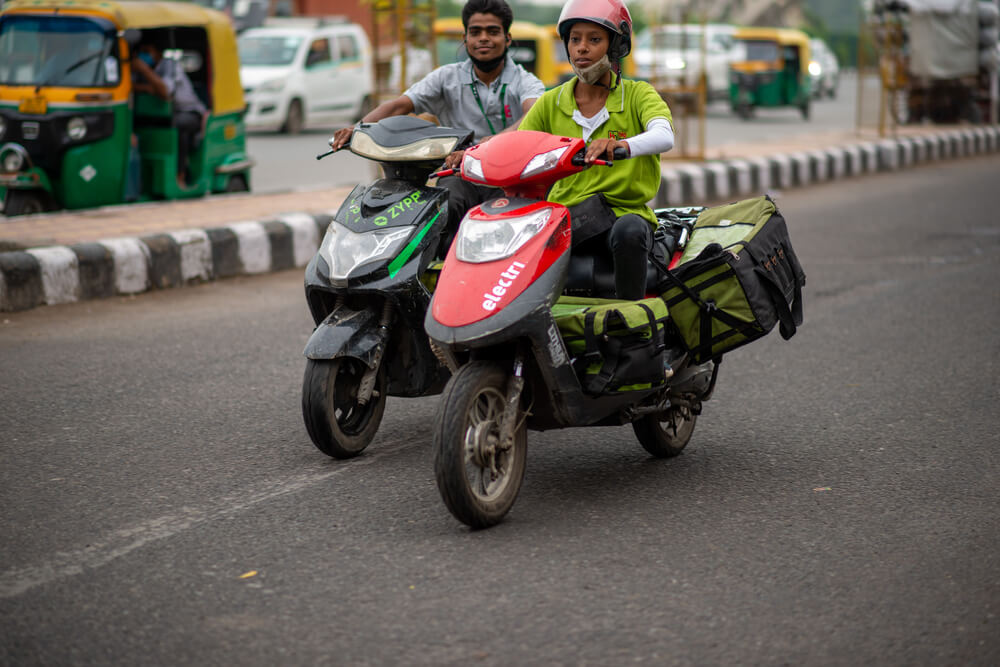ImpactAlpha, February 10 – It seems like there’s an announcement every week about new financing for an electric-vehicle startup in India.
EVs account for only 2% of vehicles on the road in India, but sales nearly tripled last year as the government pushed to get more EVs on the road and install the charging infrastructure to support them. Most sales were of two- and three-wheel vehicles.
India wants to have 80 million EVs on the road by 2030, representing 30% of private cars, 70% of commercial vehicles, 40% of buses, and 80% of two- and three-wheelers. In its budget, announced last week, the government doubles spending for its “Faster Adoption and Manufacturing of Electric vehicles” policy, or FAME.
Another driver of adoption: soaring fuel prices that are squeezing Indian consumers.
EV investing
Ventures supporting the transition to electric raised nearly $1.7 billion last year, a jump of 117% from 2021. Big deals: two-wheel manufacturer Ather Energy’s $128 million Series E round and Ola Electric’s $200 million Series C round. U.K. development finance institution British International Investment is throwing $250 million into EV manufacturing via automaker Mahindra & Mahindra.
In 2021, TPG Rise Climate announced a billion-dollar bet on India’s EV market in partnership with Tata Motors.
Most of the EV startups raising capital are small, having pulled in a few million dollars in funding or less.
Building the ecosystem
This week, Gurgaon-based Zypp Electric snagged $25 million for electric delivery fleets for India’s e-commerce companies. Simple Energy raised $20 million for low-cost electric scooters. And Pune-based Bike Bazaar closed $30 million for EV financing in India’s rural markets. The company is one a few in the EV ecosystem with an explicit social impact focus, aiming to reach more low-income Indians in second and third tier cities, improve mobility access for women, and ensure vehicles are sustainably discarded at the end of their lives.











